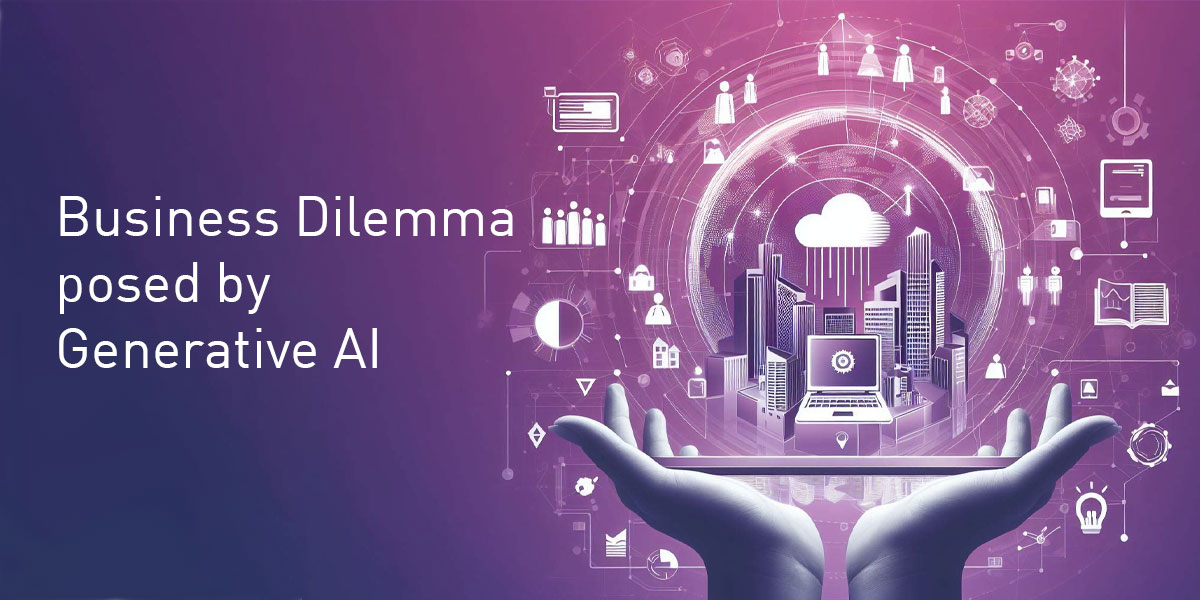Necessary cookies are absolutely essential for the website to function properly. These cookies ensure basic functionalities and security features of the website, anonymously.

How Social Media's Rise Could Inform AI's Future
The rise of social media has profoundly impacted our world but this journey was not without its pitfalls. As social media platforms boomed, regulatory bodies struggled to keep up. This led to significant problems such as the spread of misinformation and scams. This experience offers important lessons for the emerging field of Artificial Intelligence (AI), especially in understanding the importance of timely and effective regulation.
Data Privacy: From Social Media to AI
The Cambridge Analytica scandal, involving Facebook, highlighted the vulnerabilities in handling personal data. This event underscores the need for data privacy regulations in the AI domain. AI relies heavily on vast data often containing sensitive information. To mitigate these risks, new laws focus on the responsible use of personal information, emphasising individual control over data in automated decision-making processes. The European Union, with its GDPR, prioritises privacy by design to prevent misuse. The AI Act proposed by the European Commission mandates companies to analyse and mitigate risks associated with their AI systems. Similarly, the USA has state-level regulations like the California Privacy Rights Act, which sets stricter limits on data handling and allows consumers to opt out of automated decision-making technologies.
Addressing Algorithmic Bias
The issue of algorithmic bias in social media has shown the importance of ethical AI development. AI's potential to exaggerate existing societal biases means we need a commitment to inclusivity and continuous monitoring. This issue became clear when bias in content curation algorithms led to the increase of divisive content, skewing public perception and dialogue. The lesson for AI is clear: development must be underpinned by an unwavering commitment to ethical considerations and inclusivity. This involves using diverse and inclusive data sets and establishing mechanisms for continuous monitoring and correction of bias. The aim is not only to prevent AI from perpetuating existing societal biases but also to use AI as a tool for bringing greater equity.
In the USA, the AI Risk Management Framework developed by the National Institute of Standards and Technology provides voluntary guidance for AI system design, emphasising broad privacy values. The American Data Privacy and Protection Act (ADPPA) focuses on algorithmic accountability and fairness, which limits personal information collection and prohibits discriminatory use of personal data. These regulations reflect efforts to ensure AI technologies do not perpetuate historical inequities.
Mental Health Implications
Studies linking excessive social media use to increased mental health issues like anxiety and depression offer a cautionary tale for AI. As AI becomes more integrated into our lives, it's crucial to consider its psychological impacts and ensure that AI development includes safeguards to protect mental wellbeing. Developers and regulators need to prioritise safeguards within AI systems to protect mental health, so that these technologies serve to enhance human life rather than erode it.
Combating Misinformation in the Age of AI
The spread of misinformation on social media platforms shines a spotlight on the need for AI technologies to identify and correct false information. AI holds the potential to either alleviate or increase the spread of misinformation, depending on its guiding principles.
Exploring the Thematic Issues: Power, Control and Transparency
The immense power and control exercised by social media companies over public topics of debate and personal data raise deep questions about the role of AI in society. These issues go beyond technical considerations, touching on themes of power dynamics, transparency in AI decision-making processes and the broader ethical implications of AI.
Firstly, there's the big issue of power dynamics. Social media platforms have shown how technology can centralise power, creating entities that influence public opinion, shape political narratives and control the flow of information. In the context of AI, this raises questions about who will control these powerful AI systems and for what purposes? And will AI power be concentrated in the hands of a few tech giants or will it be democratised and made accessible to smaller entities and individuals? The answers to these questions have so many implications for society, as they will determine whether AI will maintain existing power imbalances or help to level the playing field.
Transparency in AI decision-making processes is a major concern. AI algorithms, particularly those involving machine learning, are often criticised for being "black boxes" with processes that are opaque and not easily understood even by their creators. This lack of transparency can lead to issues of accountability, especially when AI systems make mistakes or show biases. For instance, if an AI system used in law enforcement exhibits bias, it's crucial to understand how and why these decisions were made to rectify the situation and prevent it happening again. Ensuring transparency in AI systems is not just a technical challenge but also a societal one as it involves building trust between the public and these advanced technologies.
Conclusion
The social media saga provides a wealth of insights for the emerging field of AI. By learning from social media's successes and missteps, we can steer AI towards a trajectory that is ethical, inclusive and societally beneficial. This requires a collaborative approach, involving not just technologists but a coalition of stakeholders including regulators, the public and diverse experts.






